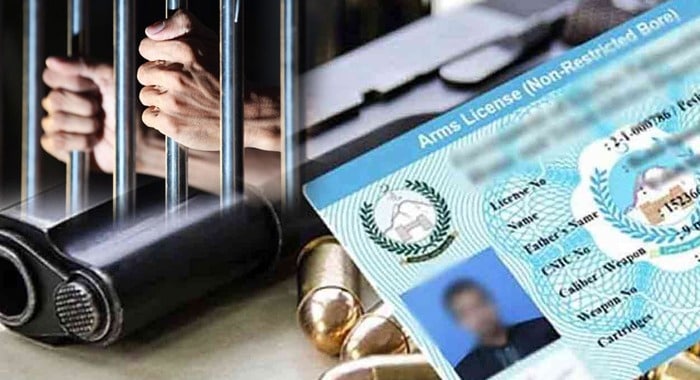A major security concern has emerged in Peshawar as police have uncovered that over 320 individuals involved in serious criminal cases across the city still legally possess licensed firearms. The alarming revelation prompted authorities to send a formal letter to the Deputy Commissioner, urging the immediate cancellation of these gun licenses.
According to the police report, these individuals are named in felony-level criminal cases yet continue to carry legally authorised weapons, posing a serious threat to public safety and law enforcement. The police warned that such individuals not only escape legal repercussions but also remain armed under the cover of legality—heightening the risk of violence and disruption of peace.
The breakdown of cases by precinct shows Chamakani police station at the top, with 51 suspects holding licensed weapons, followed by Regi with 42, Rehman Baba with 24, and Tehkal with 18. Other areas such as Khazana, Shahpur, and Bhana Mari each have 16 such individuals. The list continues across multiple jurisdictions, including Gulberg, Faqirabad, and Hayatabad.
Also Read: Fact Check: Viral Trump Video Has Nothing to Do with Pakistan or Indus Waters Treaty
In their letter, police have emphasized that individuals with ongoing criminal cases should not be allowed to retain access to licensed firearms, as it undermines public trust in the law enforcement system and could lead to serious consequences.
The letter also notes that full details of each suspect—including names, national ID numbers, and FIR references—have been forwarded to the relevant police stations for further legal action.
However, a bureaucratic impasse complicates the situation. In a previous standoff, the Khyber Pakhtunkhwa Home Department refused to act on similar police recommendations, arguing that only the judiciary has the authority to revoke weapons licenses—a position that has led to a deadlock between the two agencies.
As tensions rise and risks increase, the demand for a clear, legal, and coordinated approach to weapons regulation in the province has become more urgent than ever.





